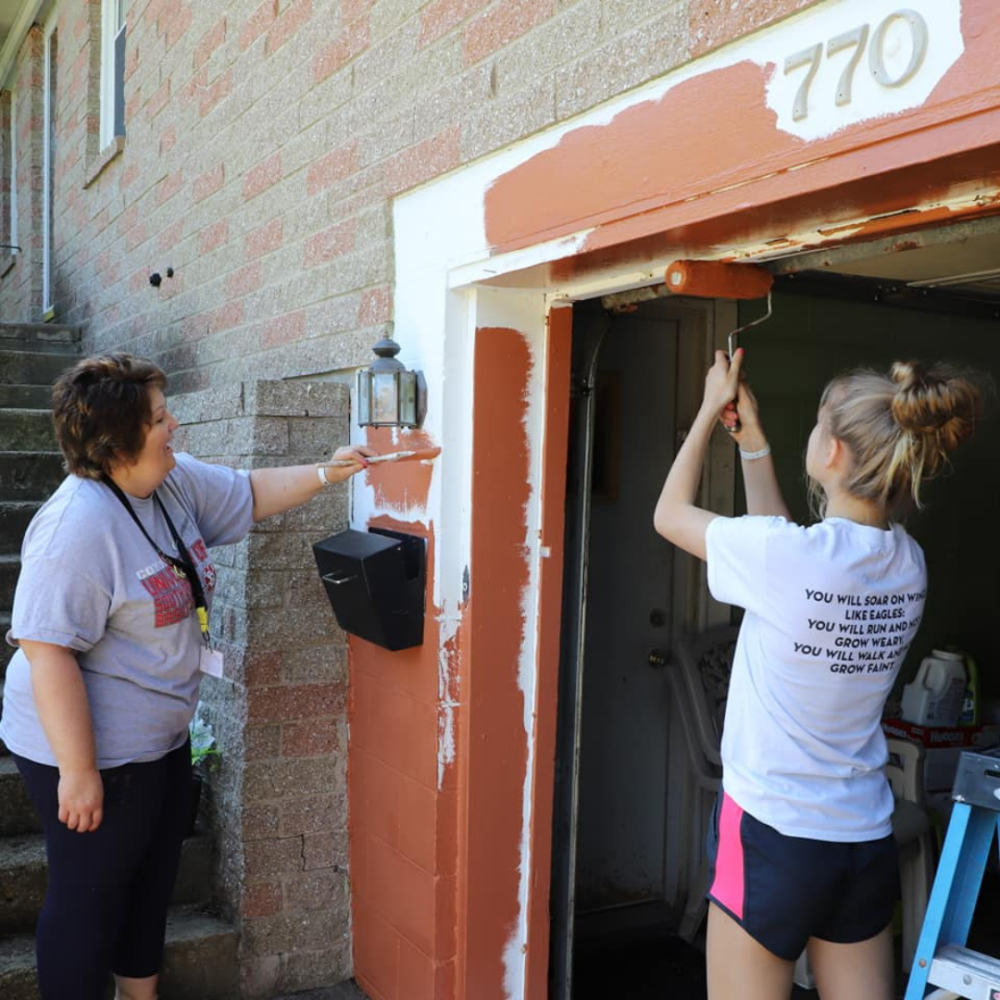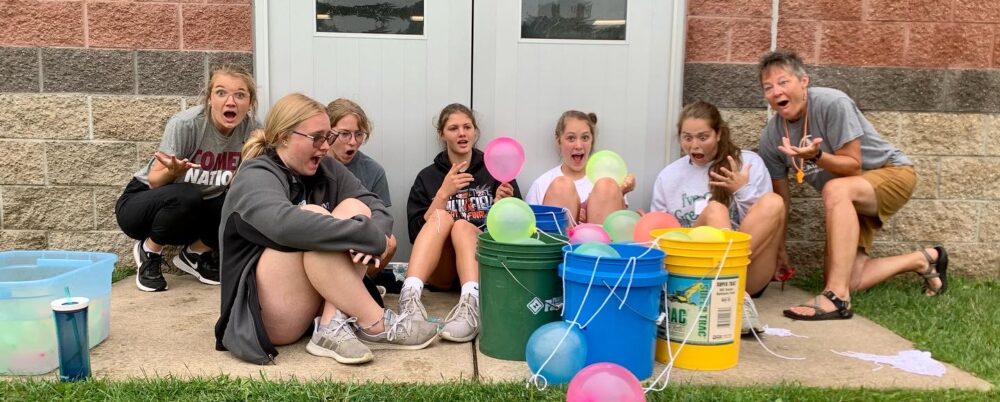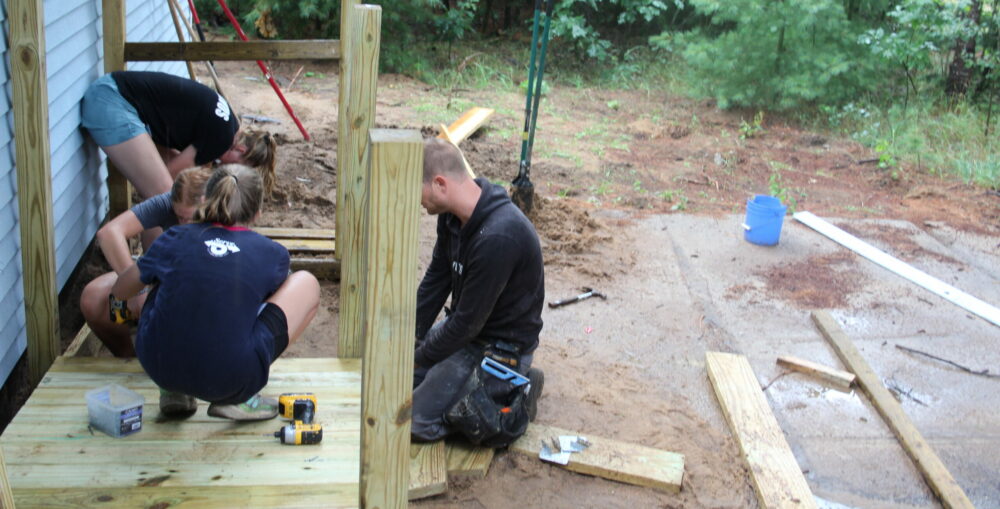Full Transcript:
Amanda:
Hello. Thank you for joining us. I’m here with my friend, Michael, and we’re going to talk about volunteer retention. So what does it look like? You’re in youth ministry. You have got a team of people around you. What does it look like to keep those people involved and actively engaged in youth ministry and build something that lasts longer than a month or two? So Michael, just share a little bit about your thoughts on volunteer retention. How do you keep your volunteers around once you’ve got them?
Michael:
Growing up and being in youth group, I always noticed that I felt like youth pastors and youth leaders really made you feel like this was the only thing that God was ever going to ask you to do and this is the most critical moment of your life right now, whether or not you’re here serving or not. So if you had other things going on, it always felt like, wow, I’m really letting the Lord down or I’m really letting this ministry down. And I feel like that can be really harmful. I feel like what’s important is recognizing that people are there because they want to be there. It is on purpose.
Michael:
Some people show up because they have a passion to pour into kids. Some people show up because they simply just want to give back. Some people are in spaces where they are like, the Lord has called me to do ministry with this youth ministry, with this life. And that’s just where I want to be, whatever that looks like. And you have to really understand them, and where they’re at and what that looks like. And I think that the spirit of the Lord shines through that. I think that as we’re sensitive to the spirit and really see other people, we allow the spirit to move and do the things that it wants to do.
Amanda:
Yeah. And when you’re in step with the spirit, you’re going to stay where the spirit is. You’re just naturally going to be in that place. And we want people that are engaged. And engagement, it starts a little bit with expectations. So I have found that when the expectations are clear, people know what’s expected of them. They stick around. So tell me a little bit, let’s talk about volunteer expectations that you have. What sort of expectations do you place on a volunteer?
Michael:
I think that for us, what’s most important is, again, bringing it back to how do we get to know the people that are serving? So for us, whenever we start with new volunteers, we all sit down in a circle and we really ask people, who are you? What’s bringing you here? And as you build a culture to where people really, really recognize that you want them to be there, you can start to say things like, hey, we want there to be some form of consistency. What can you do? How can you be consistent? Or we say, hey, this is something that we believe in. This is something we’re passionate about. What does that look like? How does that line up with where you’re at? How are you bringing the Lord into that? And so, I think that starting there and figuring out where the expectation can be and not be, is the most important piece to that.
Amanda:
That’s a really great way to bring it in, to find out who they are and what brought them there makes it easier to delegate. Because you want your volunteers to be engaged and involved in some of the dreaming and the planning, and so the way you do it is you figure out, hey, what are your passions? What are your gifts? And then how can we plug you into what’s going on here in this youth ministry?
Michael:
I think that the moment that you make people feel locked in, you kind of decide for them in some capacity what their life in ministry looks like or what their moment in time looks like. And I think that whenever you really care about what brought them there and care about who they are, it creates a space where you can pour into the part of them that wants to be there, not in a manipulating way, but in a way of empowerment and encouragement. I think that when you give people options and say, hey, this is not the only space for the Lord is going to pour in and use you. I think that people feel comfortable to really be all in in the season that they’re in.
Amanda:
Absolutely. A lot of our volunteers have families, and full-time jobs, and other things that they’re engaged in. And so it’s not necessarily setting low expectations for your volunteers of, do whatever you want and show up when you can, but it’s just being realistic with their time and with the expectations that you put on them.
Michael:
And I’ll even say that, just to go a little bit further. So for us, a little bit about what our youth ministry looks like and what our volunteers look like. We have one couple that has been there forever. They have about six kids, no older than 13. Another individual is married, has a great husband. Very awesome person runs a nonprofit. And so we have another individual who is my wife, and she works for our pantry. And we have another individual who is about 70 years old and brings a lot to the table and used to be a teacher. My co-leader is a little bit older than me, does homeschooling right now in this season. And then another person who is in their mid-20s, just married, about to have a baby.
And so I would not feel comfortable saying, hey everybody, this is when you need to be here, this is what this looks like. But saying, what does it look like to say to the couple with all the kids, how often do you feel like you can be here? What do you feel like you can commit to? These are some of the things that we would really ask of you as you’re here, what does that look like? If they’re like, we can be here and playing games, but we can’t always show up. We might email you the game structure. And so they’re pouring in regularly in the space that they committed to, but we’re also allowing them to live their lives. And so that’s really kind of a more organic and immediate example.
Amanda:
There’s a lot of freedom in Christ. And Christianity isn’t just rules. We’re here, and we give and we share out of the excess that we have. So let’s talk a little bit, I think a big piece of volunteer retention is in appreciating your volunteers. And I’m going to start by saying, if you’re watching this video and volunteer appreciation is not in your budget, then find a way to put it into your budget. It’s so important and it’s so crucial for your volunteers to feel that encouragement and that acknowledgment. And whenever possible, to make that appreciation specific, make it personal. Michael, you have a great approach to volunteer appreciation. You don’t call it volunteer appreciation. Like everything that you do in youth ministry, it’s very holistic. So you would call it Amanda appreciation or Michael appreciation. Tell me a little bit more about your holistic approach to volunteer appreciation.
Michael:
First of all, I can’t see Paul, the Apostle, walking up to someone in the church and saying, hey, you’re a great church member. You did a good job. That feels weird. I couldn’t see Jesus walking up to someone and saying, hey, thank you, disciple. You are awesome. I think that he would literally name them, and speak to them and really get to know them as people. But rolling into some of the logistics, I really believe that, again, as people are seen, people know that they are cared for because as we seek the Lord and as we walk in who the Lord has called us to be, it calls us to have empathy. It calls us to recognize people as who they are. And doing those things allows us to better minister, to better care, and to better empower people.
And that’s great for those who don’t know the Lord and that’s great for those who do. When it comes to volunteers, I think it’s important to find little things. What do they like? I try to regularly say and use language, and remember characteristics of volunteers and speak those directly to them because I don’t want volunteer appreciation to happen whenever we have a volunteer appreciation event, but I want them to regularly be experiencing appreciation. Just like the Lord’s not like, hey, someone accepted Christ under your leadership. You’re awesome. It’s like, no, that 10 weeks where I was crying, and did not care and was having a rough time, the Lord was like, hey, thank you for being you. How can I grow with you? How can I love you in a deeper way? How can I serve you? How can we do this together?
Amanda:
Sure. Let’s talk about check-ins. Check-ins with volunteers. That’s a great way that you can get to know all the other things that they’re doing in their life, apart from youth ministry and apart from youth group. What do check-ins look like for you?
Michael:
I always have three things, three or two things that I absolutely want to know. That’s how are we doing and how are we supporting you? What can we do better? So that’s three. And so, when I go into a check-in, it’s not like, let’s rattle off all these things. It’s sitting down, having the conversation. Where are you at in life? I share where I’m at in life. We just talk and build rapport and build relationship. And from there, I like to just say, you’ve been really consistent. You’ve been someone who has been here. What do you feel like we could do better? Because stop right there. What you immediately have done is you have encouraged someone, you have recognized them and you have seen them. And you have also said, hey, you must have some sort of input. You have ownership in this. What do you feel like I can do better in my role? And so there are ways to literally do those things very well.
Amanda:
I love your holistic approach, and just always be pouring into them, and who they are and all that God has called them to be. So, thanks. Thanks so much. This has been great.


